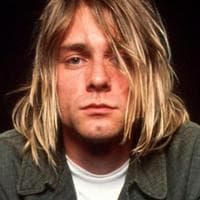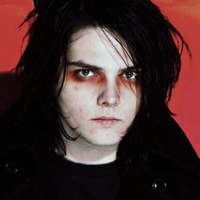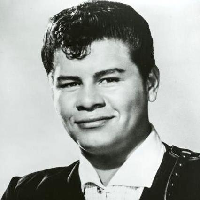Dominic Howard MBTI Personality Type
Personality
What personality type is Dominic Howard? Dominic Howard is an ESFJ personality type in MBTI, 6w7 - - 682 in Enneagram, in Big 5, in Socionics.
Okay, hear me out, I think Dom is actually an ESFJ. The only reason why I typed him as an ESFJ over an ISFJ is due to his Ne being too prominent to be inferior. I'm going to exemplify with interviews: ➼ When asked if he had a religious upbringing: “Uh, no I didn't actually. I never really went to church or I was never forced to go to church (...) None of us did. I think that's why none of us are particularly religious people, but I think that's why, some elements of questioning religion are brought up in some of the songs, you know? 'Cause none of us are particularly fixed on our ideas of faith. I know a few religious people that play in bands and they certainly don’t go near that (questioning religion) (...) I think music at the moment is kind of, as an art form, a form of replacement for something like that, which I think a lot of people are looking for at the moment you know? It’s a form of the arts that makes people feel secure, brings out a lot of emotion that people get really involved with and believe quite heavily in.” He was asked about his own upbringing yet he quickly focuses his answer on Chris and Matt, and then on the religious community. He compares a shared sentiment from the religious community with Muse’s situation (which is non-religious) even if he doesn’t personally agree with that, and also withdraws a theoretical explanation as to why this happens. This suggests he's able to perceive external and shared valuation while also identifying a logical principle that explains this type of shared behavior, indicating he uses Fe and Ti over Te and Fi. When Blackholes and Revelations came out he said that he was very happy about how they managed to show all their different ideas and influences very well. This desire to communicate ideas accurately is usually a product of the Fe-Ti axis. ➼ “Anything from Matt’s on top, any pianos or guitars, so we kind of focused on that quite a lot and I think that made us, me and Chris, think about the way we played, just slightly different and just kind of harder in a way really. (...) So I think there was a certain improvement (...) I mean, the piano work that Matt did, I think it’s definitely a step forward from what he’s done in the past and like I said about the vocal work. I think he’s quite proud of the vocal stuff and the string stuff as well, which is something we haven’t done (...) I think Chris worked a lot on really kind of playing faster bass lines.” Repeatedly stresses the atmosphere around the three of them evolved thanks to Matt and analyzes how that influenced their music. Also talks a lot about how Matt and Chris felt rather than focusing on himself or how he was affected by it, even when he talks about his own feeling more often than not he corrects himself to clarify that it was also how the rest of the band felt despite being a solo interview. This is because Fe users tend to assume that deep down, we're all pretty much the same, so by describing Matt and Chris' feelings, he's also inadvertently telling us how he felt as well, so I highly doubt he’s a Fi user. When Matt and Dom wanted to train as Punch as Judy showmen, Matt wanted one of their props (a string of sausages) to symbolize alien DNA strands, but Dom told him it was “too highbrow” for their audience. Compare Matt’s desire to represent ideas as accurately as possible (Ti) versus Dom’s urge to make sure it’s accessible for the audience, even if they had to sacrifice some precision (Fe). ➼ Regarding his perceiving axis: “You know, suddenly our lives changed so much. We were touring around and it gets quite hectic and crazy and confusing sometimes when you’re moving around the world so quickly and I think that album reflects on losing a connection with the past as well. (...) This time around we took quite a bit of time. (...) We got this room in London then, just to make music, which kind of felt really good, ‘cause it felt like we hadn’t done that for so long because the last album was made in sound checks and various little rehearsal rooms whenever we could between touring schedules.” This part seems to carry some Si, he explains how he perceived these two different scenarios, and the personal impression he got from them. He decides to describe the feelings he got back then while keeping in mind how they differed from past experiences. (1/2)
Biography
Dominic James Howard is an English musician, best known as the drummer, percussionist and co-producer for the rock band Muse















